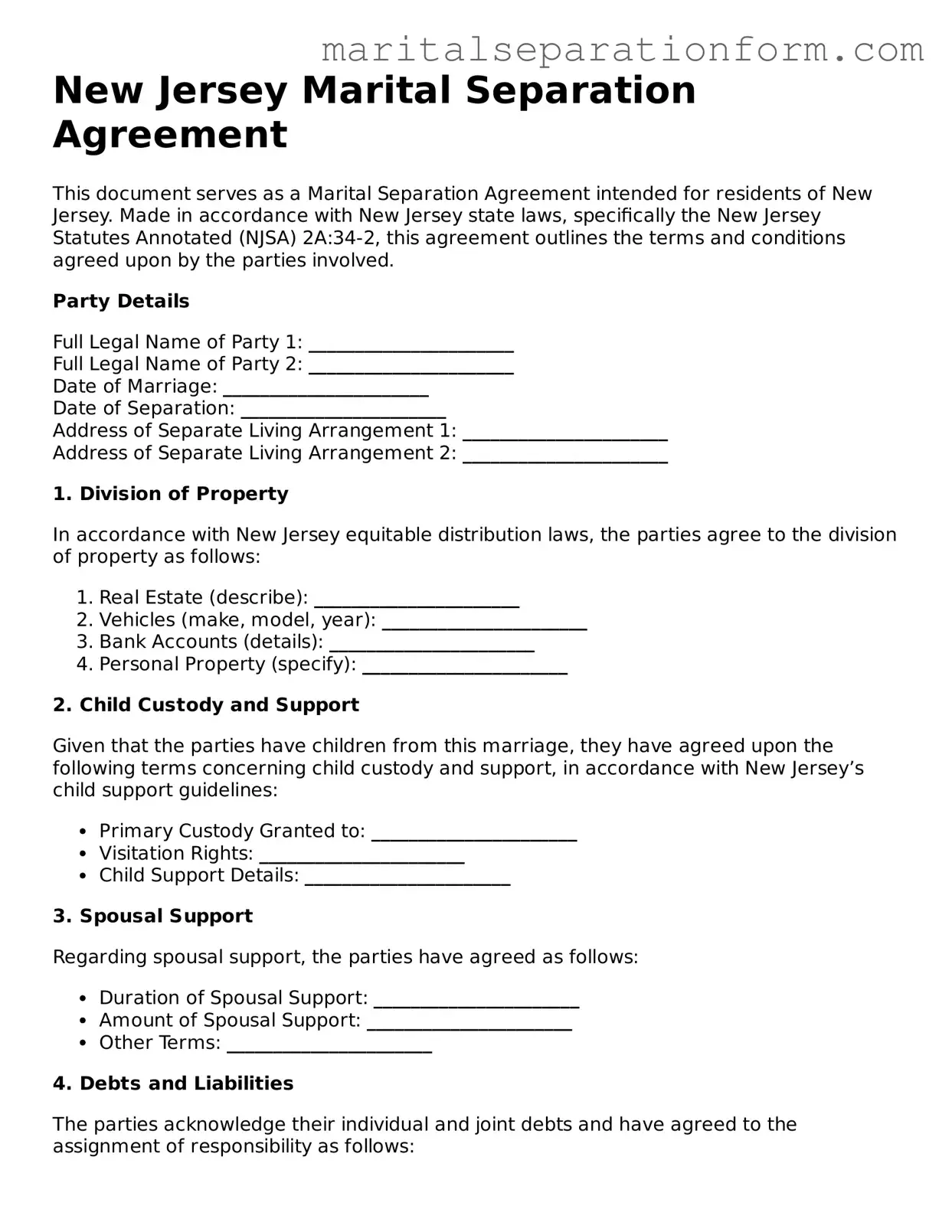What is a Marital Separation Agreement in New Jersey?
A Marital Separation Agreement in New Jersey is a legally binding contract between spouses who have decided to separate and live apart but are not yet ready or willing to divorce. This agreement outlines the terms of their separation, including but not limited to child custody and visitation, child support, alimony, and the division of assets and debts. It provides a framework for their rights and responsibilities during the separation period.
Do I need a lawyer to draft a Marital Separation Agreement in New Jersey?
While it's not a legal requirement to hire a lawyer to draft a Marital Separation Agreement in New Jersey, it is highly advisable. Legal counsel can ensure that the agreement comprehensively addresses all relevant issues and complies with New Jersey law, protecting your rights and interests. Additionally, an attorney can provide valuable advice on negotiating fair terms.
Can a Marital Separation Agreement be modified in New Jersey?
Yes, a Marital Separation Agreement can be modified in New Jersey, but both parties must agree to the changes. Any modifications to the agreement should be made in writing and signed by both parties. If both parties cannot agree on modifications, they may need to seek a court's intervention to alter the agreement based on a significant change in circumstances.
Is a Marital Separation Agreement enforceable in New Jersey?
In New Jersey, a Marital Separation Agreement is enforceable if it has been properly executed by both parties. This means that both parties must willingly sign the agreement without coercion or undue influence, and it's advisable to have the signatures notarized. If a party fails to adhere to the terms of the agreement, the other party can seek enforcement through the court, which may involve legal penalties.
What happens to the Marital Separation Agreement if we decide to divorce later?
If you decide to divorce after entering into a Marital Separation Agreement in New Jersey, the terms of your separation agreement can often be incorporated into your final divorce judgment or decree, granting it the same legal force as any other court order. However, the court will review the agreement to ensure that it is fair and reasonable, especially regarding any provisions related to children, before incorporating it into the divorce decree.
Can we create a Marital Separation Agreement if we have children?
Yes, couples with children can and should create a Marital Separation Agreement in New Jersey. It is essential to address parental responsibilities, including custody arrangements, visitation schedules, and child support, to provide stability and support for the children during the separation. It's important to prioritize the best interests of the children when drafting these provisions.

